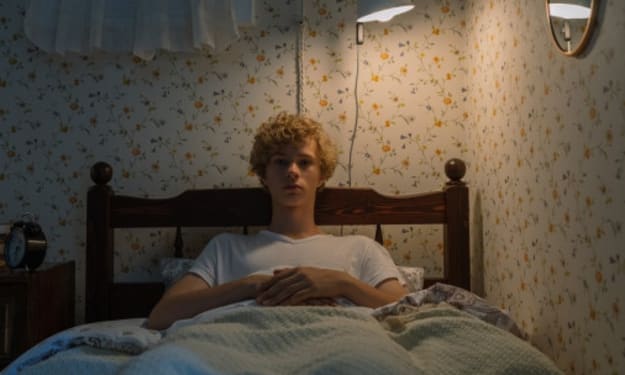Nyctophobia in adults: what it is and how it is treated in psychotherapy
Nyctophobia or fear of the dark is an alteration that can also occur in adults.

Throughout the history of humanity, the night has fascinated the members of our species, and it is not uncommon that for millennia it has been associated with magical phenomena; In many cultures, those hours of darkness have served as inspiration for all kinds of stories and fantastic stories through which they tried to explain reality, or at least, the parts of it that could not be understood due to relatively little scientific development.
However, for some people, the night can be a generator of deep discomfort, anxiety, irrational fear and even terror. In these cases we are facing a case of nyctophobia or fear of the dark.
Although it is more common among boys and girls, this emotional alteration can affect people of all ages, and in the most problematic cases it is necessary to turn to a psychologist as soon as possible. For this reason, in this article we will focus on the phenomenon of nyctophobia in adults , taking into account that this discomfort is usually overshadowed by the importance of its version that occurs in childhood.
What is nyctophobia?
Nyctophobia or irrational fear of the dark is a phobic-type anxiety disorder characterized by a series of physical and psychological symptoms that the person experiences whenever they are in dimly lit places, either at home or in any other setting.
Fear of the dark is a fairly common fear in young children, usually presenting between the ages of 2 and 7; however, in some people this disorder can worsen and persist during adolescence and adulthood , remaining as a phobic disorder, or it can even appear in adults who during the previous years had not suffered from this problem.

The appearance of nyctophobia can be due to a wide variety of factors; Some of the most common are usually traumatic experiences that have happened at night or involve dark settings, or an excessive fear of the dark during childhood that remains. However, it is not necessary that these kinds of events have occurred. Sometimes, phobias appear without an apparent cause (something that is actually due to a combination of many causes that are more discreet than a traumatic experience).
Nyctophobia can be intensified by a wide variety of catalysts , among the most frequent in which a person with this disorder can be found include the fact of having to spend the night alone, meeting in dark places in the city, going to the movies or to the theater where the lights are off, etc.
Symptoms
As indicated, nyctophobia presents a series of physical and psychological symptoms of discomfort in the person that can affect their physical and psychological health to a greater or lesser extent.
The main psychological symptoms of nyctophobia are those typical of the rest of specific phobias ; extreme anxiety, general malaise, tremors, dizziness, pulse racing, cold sweats, feeling of loss of control over the body, the appearance of catastrophic beliefs, sweating, excessive agitation, insomnia, or the mental block.
Characteristics of nyctophobia in adults
Fear of the dark is usually associated with child behavior; Now, if something characterizes irrational fears, it is precisely that they do not depend on the knowledge we have about how the world works, and that is why adults can also suffer from it despite having much more information and experience. than the little ones.
In this sense, there are two aspects that characterize nyctophobia in adults and that we must add to the rest of the experiences and symptoms that we have already seen. On the one hand, in these people the most common thing is that, from an intellectual point of view, they know that technically they are not in danger by being in the dark, at least technically; however, they feel that they are not safe , beyond what their more rational and analytical side dictates. So much so that with the passing of minutes they tend to generate "exceptions" in their minds about why the rules according to which reality works do not apply to their specific case.
On the other hand, adults who suffer from nyctophobia find themselves with the added problem of being embarrassed to talk about their problem , precisely because in the collective imagination this is an experience that only young children have. In other words, if they suffered from any other type of phobia, they would probably have less hesitation to talk about it and recognize that it is serious enough to have to go to therapy.
How is nyctophobia treated in psychotherapy?
Nyctophobia can be treated in psychotherapy by a qualified professional, who initially conducts a prior personal interview accompanied, if necessary, by a series of psychological tests.
Once the patient's profile and the levels of irrational fear they suffer have been evaluated in depth, the psychotherapist will proceed to intervene from cognitive-behavioral therapy , one of the most used in anxiety disorders.
This way of intervening in patients allows the affected person to be helped to change their maladaptive thoughts regarding darkness for more positive ones that allow them to realize how irrational the fear they are suffering from, and at the same time, helps them to develop patterns of behavior that go in the same line of overcoming fear.
In addition to that, the intervention may also include relaxation techniques, mindfulness techniques, virtual reality techniques, and the Exposure or Desensitization Technique. Such techniques allow the person to progressively come into contact with the source of their irrational fear to the point where they get used to being in the dark and their symptoms gradually weaken.






Comments
There are no comments for this story
Be the first to respond and start the conversation.